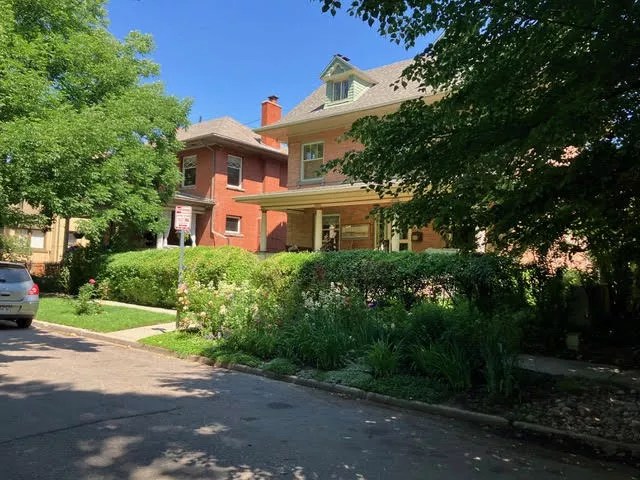
Barbara Wright

Audio By Carbonatix
I was struggling to get my husband, Frank, out of the car and into a wheelchair when a neighbor stopped by to lend a hand. He had no motive other than to help someone in need. I asked if he could assist Frank three times a week after dialysis. He didn’t want to be paid, but I insisted. I was elated because I had been trying for weeks to find someone to do this job.
On June 4, that neighbor, Oscar Luis Realivasquez Cordoba, was picked up by ICE. He had been living in the neighborhood for seven years and had no criminal record, not even a traffic ticket.
I am a 73-year-old white woman who lives in a leafy historic enclave of gracious homes, most built by the same architect around 1906. It is a mixed Denver neighborhood, with some houses divided into apartments. During Frank’s long illness, neighbors shoveled my sidewalk, watered plants, gave me vegetables from their gardens, and kept an eye out for porch deliveries. More than once, I shouted out as Frank collapsed during a transfer, and a neighbor came running.
When Oscar volunteered to help, I knew that I had run into pure gold. It is devilishly hard to find a caregiver strong enough to lift a six-foot-tall man from a car to a wheelchair and then into a chair lift. Even harder is finding someone who is patient and kind. Oscar helped Frank for several months, until shortly before Frank died last November.
Two images collide in my mind: Oscar gently transferring Frank from the passenger seat versus three ICE agents ripping Oscar from his car and slamming him to the ground. The virtuous and the vile – two conflicting strains in our society battling for primacy. Both scenes took place on my block.
Many people who voted for Trump believed that he would deport violent criminals, not good neighbors who had jobs, paid taxes and added to the fabric of the community. Oscar had been doing maintenance work for the same company for eight years.
The through-line has become obvious: First, ICE picked up criminals, then it expanded to random sweeps at Home Depot, elementary schools, courts and farms in an effort to put the “mass” in mass deportation. The Trump administration now defines anyone who has broken an immigration law as a criminal, even though that is a misdemeanor and not a felony. According to CNN, fewer than 10 percent of the people detained by ICE have been convicted of a violent crime.
Never could I have imagined that the immigration roundups would personally affect me in our peaceful neighborhood. I contributed to buy a plane ticket for Oscar, so that he could return to his hometown of Juarez, Mexico, and avoid a lengthy stay in the Aurora Detention Center. He is now with his family, but reports that he remains saddened by the humiliating experience of being violently manhandled and treated like a common criminal.
I was lucky to find Oscar. Others will not be so lucky. Anyone who has tried to get help for their aging parent or spouse knows how impossible it is to find a caregiver. I witnessed first-hand the severe labor shortage in rehab centers, local home-care agencies, even the poshest nursing homes. Americans do not want these low-paying, back-breaking jobs. The problem will only get worse as we face the tsunami of aging baby boomers.
Americans have arrived at a turning point: What kind of country do we want to live in? One where the performative cruelty of ICE results in a climate of fear and rising prices, or a country based on community and what is best in the grand experiment of democracy?
I stand with the Oscars of the world.

Barbara Wright
Barbara Wright is a writer living in Denver. Her novels include Anny in Love, Crow, Easy Money and Plain Language, which won a Spur Award from Western Writers of America.
On weekends, westword.com publishes commentaries on matters of interest to the Denver community; the opinions are those of the authors, not Westword. Have a piece you’d like to share? Email editorial@westword.com, where you can also comment on this essay.